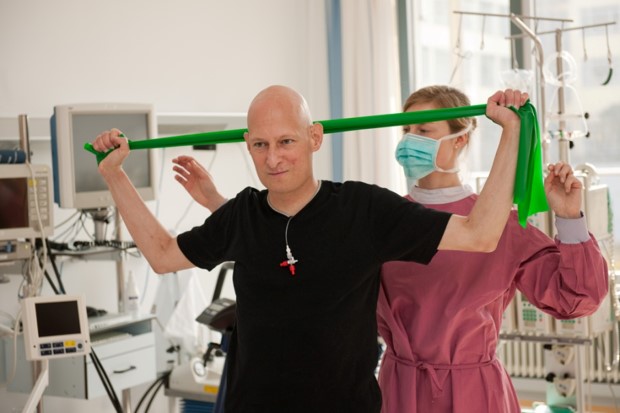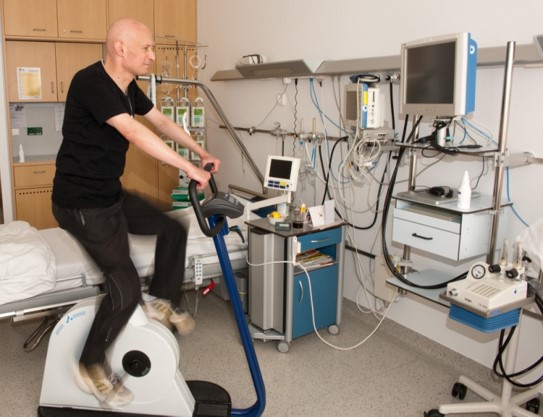Heidelberg, 2018:
Kontraindikationen körperlicher Aktivität aus der Sicht onkologischen Fachpersonals
Die individuelle Wahnehmung spezifischer Kontraindikationen zu körperlicher Aktivität bei Krebserkrankungen aus Sicht des onkologischen Fachpersonals hat einen wichtigen Einfluss auf die Aussprache wichtiger Empfehlungen für Krebspatienten. Ziel dieser Studie war es daher, diese Wahrnehmungen und Einstellungen bezogen auf spezifische medizinische Kontraindikationen zu untersuchen.
Insgesamt wurden dafür 539 Ärztinnen und Ärzte und 386 Krankenschwestern und Pfleger dazu befragt, welche der aufgelisteten 13 medizinischen Konditionen als Kontraindikationen zu körperlicher Aktivität zählen könnten. Die Analyse der Fragebögen ergab, dass Allgemeinärzte, spezialisierte Ärzte und Pflegekräfte unterschiedliche Kontraindiaktionen als schwerwiegend einstuften, wobei alle Berufsgruppen eine sehr umsichtige und bedachtvolle Einschätzung bezüglich individueller Sicherheitsaspekte hatten. Große Sicherheit gaben Erfahrungswerte aus der Praxis, woran sich sichere Empfehlungen zu körperlicher Aktivität für Krebspatienten anschlossen.
Originalartikel
Health Care Professionals’ Perception of Contraindications for Physical Activity During Cancer Treatment
Introduction:
Suggested medical contraindications for physical activity (PA) during cancer therapy might have an influence on PA recommendation behavior of Health Care Professionals (HCP). The purpose of the present study was to examine perceptions of physicians and oncology nurses (ON) toward specific medical conditions as contraindications for PA during cancer treatment.
Materials and methods
A total of 539 physicians and 386 ON were enrolled in this cross-sectional survey. HCP judged 13 medical conditions as to whether they are contraindications for PA during cancer treatment. Answering format was “no contraindication”/“potentially a contraindication”/“yes, a contraindication.”
Results
χ2 analyses revealed significant differences between general practitioners, specialized physicians, and ON in their perception of 10 medical conditions. Approximately half of the medical conditions were answered cautiously, showing high numbers on the response option potentially (36–72%). Moreover, physicians’ ratings differed significantly depending on their practical experience with particular medical conditions. Those being familiar with a specific medical condition was more permissive to PA during treatment, with effect sizes (Cramer’s V) ranging from 0.13 to 0.27.
Conclusion
Results indicate high cautiousness among HCP in judging medical conditions and their impact on PA during cancer treatment. However, group comparisons show that familiarity and clinical experience with potential contraindications facilitate a confident handling of safety issues, which at best leads to higher levels of PA recommendations during cancer treatment.
Autoren: Angeliki Tsiouris, Nadine Ungar, Alexander Haussmann, Monika Sieverding, Karen Steindorf and Joachim Wiskemann
Journal: Frontiers in Oncology 2018; 8: 98.
Volltext: PubMed, Frontiers in Oncology open access
Regionales OnkoAktiv Zentrum Heidelberg



